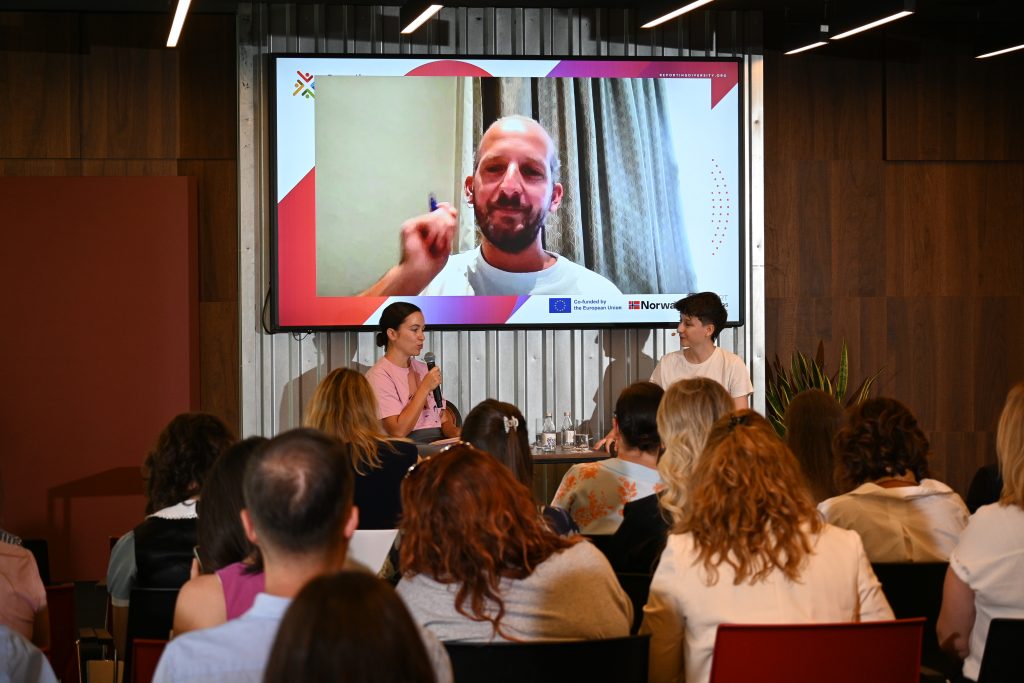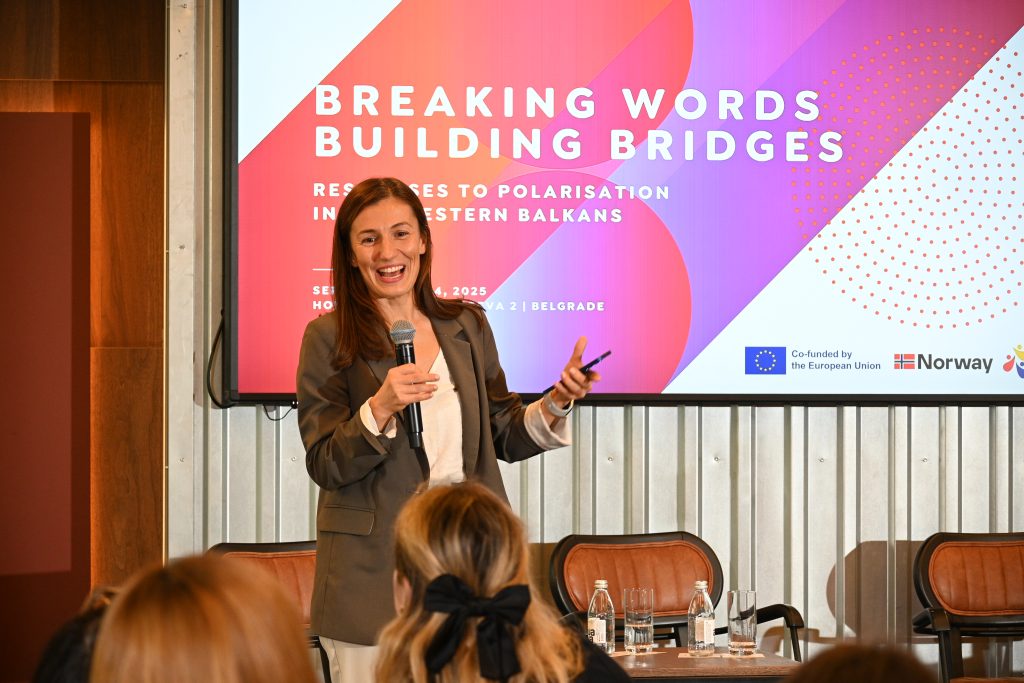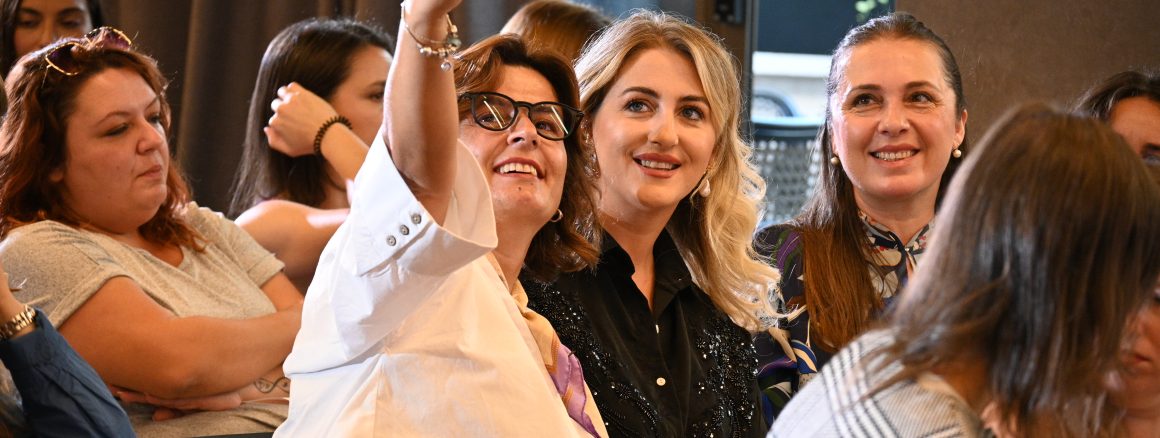Breaking Words, Building Bridges: Regional Experts Warn Against Rising Polarisation in the Balkans
October 1, 2025
Hate speech in the Western Balkans is becoming more complex, layered, and increasingly used as a political weapon, according to new media monitoring reports presented at the regional conference Breaking Words, Building Bridges: Responses to Polarisation in the Western Balkans held in Belgrade, Serbia.
The Reporting Diversity Network (RDN) showcased its third set of reports covering January 2024 to July 2025 highlighting persistent hateful and harmful narratives, especially those targeting gender and ethnicity.
In Serbia, the latest findings show that hate speech has not only intensified but also diversified in the wake of the rising political crisis. More than 40% of recorded cases targeted overlapping identities, such as political opponents who were simultaneously attacked on the basis of gender or ethnicity. In Albania, nearly half of all cases targeted gender, followed by hate against journalists and political opponents. Ethnic hate remained dominant in Bosnia and Herzegovina, Montenegro, North Macedonia and Kosovo, showing still strong ethnic divides across the region. Across the region, main sources of hateful and harmful rhetoric remain political figures, media outlets and social media users.
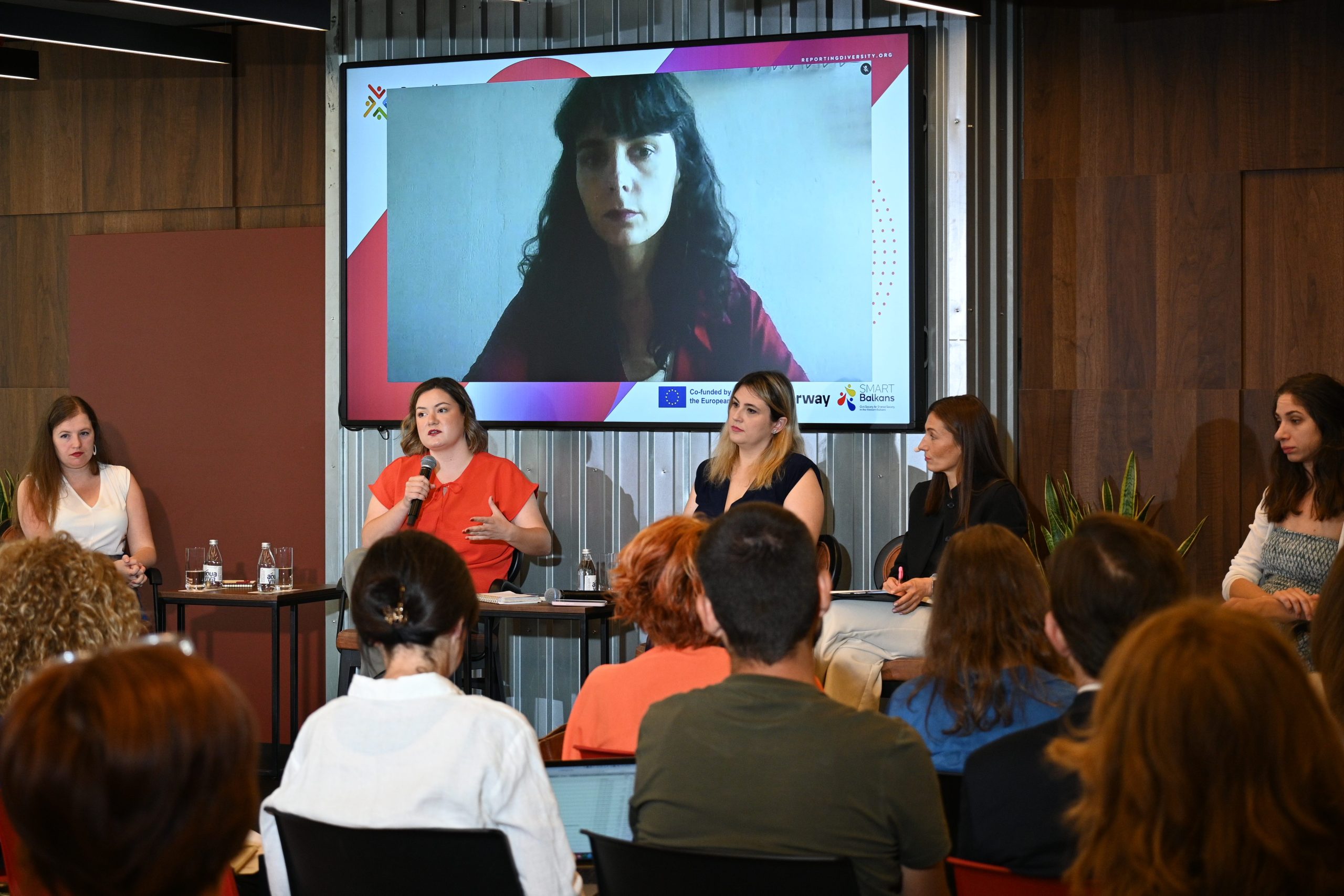
At the two-day regional conference hosted by the Media Diversity Institute Western Balkans, journalists, media experts, and civil society representatives from across the region gathered to confront the growing challenges of hate speech, disinformation, and political divides.
The event opened with an exhibition on gender hate speech in the media, curated by artists Una Mazrak and Ismar Žalica based on RDN findings. Panels brought together leading voices from across the region who warned that polarisation in the Western Balkans is deepening, fueled by disinformation and amplified by insufficiently regulated social media platforms.
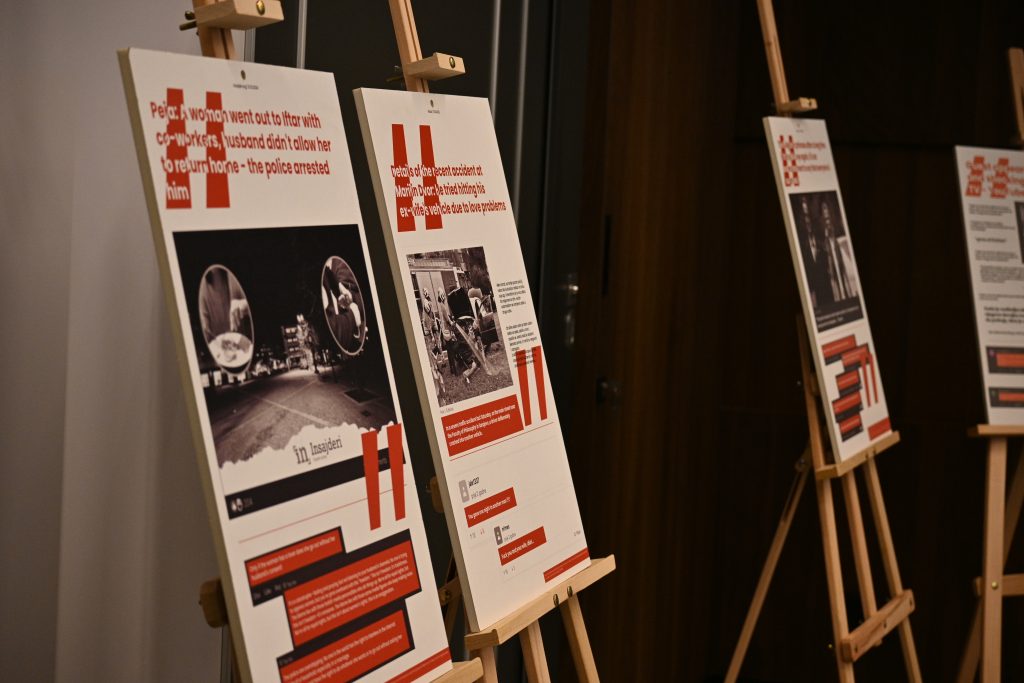
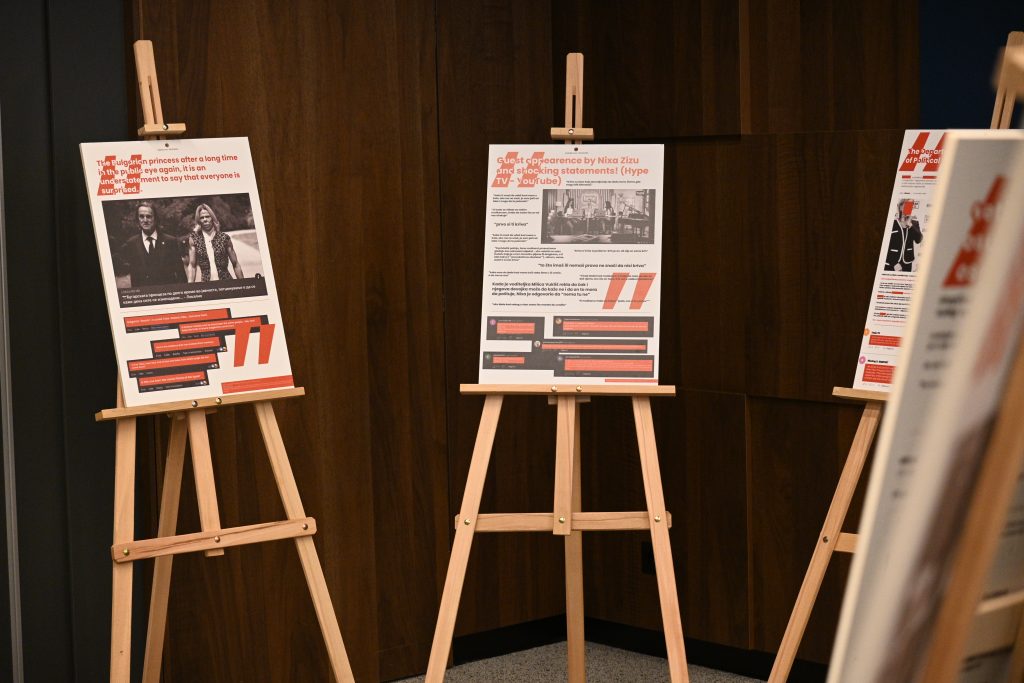
Sessions also focused on media regulation, representation as a countermeasure, and the dangers faced by journalists reporting in increasingly hostile environments. A panel with Iva Parađanin and Dardan Hoti, both running platforms that provide space for marginalised voices, discussed why representation is important.
The second day opened with discussions on inter-ethnic divides and how to foster cooperation among young people across the region. A highlight was the workshop “Words Break Bones” led by linguist Anna Szilágyi, which trained participants to identify and counter scapegoating narratives, a tactic increasingly used to fuel fear and division.
Participants agreed that urgent action is needed to challenge harmful narratives before they take even deeper roots. The conference closed with a call for solidarity across borders, sectors, and communities in defending inclusive, democratic discourse.
